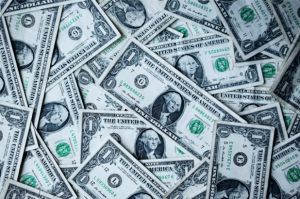Difference between revisions of "Differences between Socialism and Capitalism"
(Created page with "thumb|right|Capitalism focuses on the creation of wealth File:Arie-wubben-hmHzcV1r6KM-unsplash.jpg|thumb|Socialism, on th...") |
|||
| (One intermediate revision by the same user not shown) | |||
| Line 1: | Line 1: | ||
| − | [[File:Sharon-mccutcheon-8lnbXtxFGZw-unsplash.jpg|thumb| | + | [[File:Sharon-mccutcheon-8lnbXtxFGZw-unsplash.jpg|thumb|left|Capitalism focuses on the creation of wealth]] |
| − | [[File:Arie-wubben-hmHzcV1r6KM-unsplash.jpg|thumb|Socialism, on the other hand, focuses on reducing wealth disparities]] | + | [[File:Arie-wubben-hmHzcV1r6KM-unsplash.jpg|thumb|right|Socialism, on the other hand, focuses on reducing wealth disparities]] |
Socialism and capitalism function as opposites, economically and politically speaking. They both have opposite ideas regarding social equality and how far should the government of a country get involved. While capitalism trusts entirely in the economical influence and power of private companies, socialism believes inequality between citizens must be finished and the way to do this is by helping the poor get over their economical situation. According to socialism, education and healthcare should be free in order for people to live in better and equal conditions. Some modern examples of capitalism and socialism are the United States (considered the ultimate capitalist country) and North Korea (one of the most controversial communist countries). | Socialism and capitalism function as opposites, economically and politically speaking. They both have opposite ideas regarding social equality and how far should the government of a country get involved. While capitalism trusts entirely in the economical influence and power of private companies, socialism believes inequality between citizens must be finished and the way to do this is by helping the poor get over their economical situation. According to socialism, education and healthcare should be free in order for people to live in better and equal conditions. Some modern examples of capitalism and socialism are the United States (considered the ultimate capitalist country) and North Korea (one of the most controversial communist countries). | ||
{| class="wikitable" | {| class="wikitable" | ||
Latest revision as of 15:22, 14 August 2020
Socialism and capitalism function as opposites, economically and politically speaking. They both have opposite ideas regarding social equality and how far should the government of a country get involved. While capitalism trusts entirely in the economical influence and power of private companies, socialism believes inequality between citizens must be finished and the way to do this is by helping the poor get over their economical situation. According to socialism, education and healthcare should be free in order for people to live in better and equal conditions. Some modern examples of capitalism and socialism are the United States (considered the ultimate capitalist country) and North Korea (one of the most controversial communist countries).
| Capitalism | Socialism | |
|---|---|---|
| Principles | The means of production, or capital, are all about their (private) owners. Every profit is only meant for the owners or the shareholders. Workers are not that important. Any person who has the way of owning a company can own one. Individual benefits are the ultimate goal. | On the other hand, socialism believes every person has a way of working for the society, everyone must do whatever they are good at and everybody must receive in exchange exactly what they deserve. Benefits must be distributed, every citizen receives something and there are not empty hands. |
| Definition | Capitalism is a system based in concepts such as free market, privatization and private companies. | Socialism is a system in which private property is forbidden. Instead, property is common and workers are the legit “owners” of their means of production. |
| Ideology | It refuses to allow any kind of governmental economical intervention, due to interferences they believe might affect their functioning. The best for a society comes as a result from a free market. | Every citizen should be able to have access to basic services and basic articles. This would allow people to be in equal conditions. Any large company is a result form collective effort; hence all of the benefits must benefit everyone equally. |
| Main personalities | Richard Cantillon, Adam Smith, David Ricardo, Frédéric Bastiat, Ludwig von Mises, Fredrich A. Hayek, Murray N. Rothbard, Ayn Rand, Milton Friedman. | Charles Hall, François-Noël Babeuf, Henri de Saint-Simon, Robert Owen, Charles Fourier, Louis Auguste Blanqui, William Thompson, Thomas Hodgskin, Pierre-Joseph Proudhon, Louis Blanc, Moses Hess, Karl Marx, Friedrich Engels, Mikhail Bukinin. |
| Politics | Capitalism can work along with other systems such as republics, democracies, even anarchism and dictatorships. However, most capitalist countries have a democratic republic. | Socialism can work with other systems as well. Anyhow, socialist governments usually choose to work as democracies. Parliamentary democracies and participatory democracies are common. |
| Political movements | Some examples of capitalism driven governments are classical liberalism, social liberalism, modern social democracies, and even anarcho-capitalism. | As for socialism, there is syndicalism, social anarchism, communism, democratic socialism and libertarian socialism. |
| Variations | State capitalism (neo-mercantilism) and free market capitalism (laissez-faire capitalism). | Communism, state socialism, social anarchism and market socialism. |
| Social structure | There are class distinctions. There is also high mobility between classes: people can go up or down. | There are no class distinctions. Also, there is no mobility between classes. |
| About private property | Private property is the main form of property. | There are two types of property. The first one is private property, which includes all personal goods, and public property which involves the means of production. This are meant to be owned by both the State and the workers. |
| Key points | Competition is the main key point. It moves economical activities and helps allocate resources. Most profits are usually reinvested in order to keep this economical machinery going. | Collective ownership is the key point of socialism. So are labor unions, economical planning, equality, industrial democracy, among other. |
| Religion | People are free to choose their religion. | People are also free to choose, however secularism is desired. |
| About free choice | Everyone makes its own decisions. People have to choose wisely, because they must live with the consequences of their choices. This allows consumers to decide where the economy goes. | Although there is free choice, some things are up to the State for decide, such as production decisions. Also, education healthcare are funded by taxation and there is no other choice. As for religion and marriage, these are examples of individual free choice. |
| About discrimination | There should not be any discrimination. Capitalism doesn’t have preferences, although it tends to favor the higher social classes over the working class. | Citizens are considered equals. There are laws to prevent discrimination, especially for vulnerable minorities. As for immigration, it is highly restricted for some. |
| About the world | For capitalism, capitalist countries and capitalist markets are freedom-makers. They believe capitalism is the best thing for the world, mainly because it offers freedom that cannot be had with communism and fascism. They put individualism over nationalism, although nationalism is a common practice. | The ultimate goal of socialism is democracy. They work along with the middle and the working class in order to have equality. |
| Examples | Economically speaking, the modern world works under many capitalist principles. Some of the main capitalist countries are the United States, the UK, Singapore and Hong Kong. | The most famous example of a socialist country is the formerly USSR (Union of Soviet Socialist Republics). |

